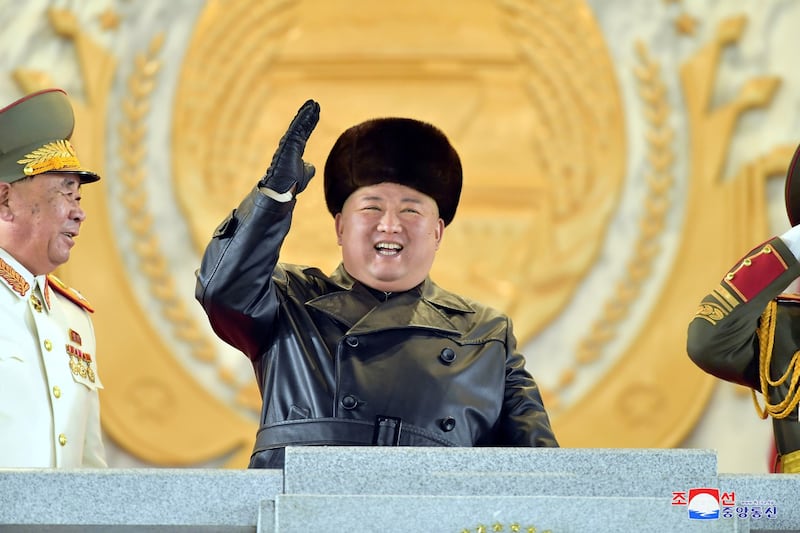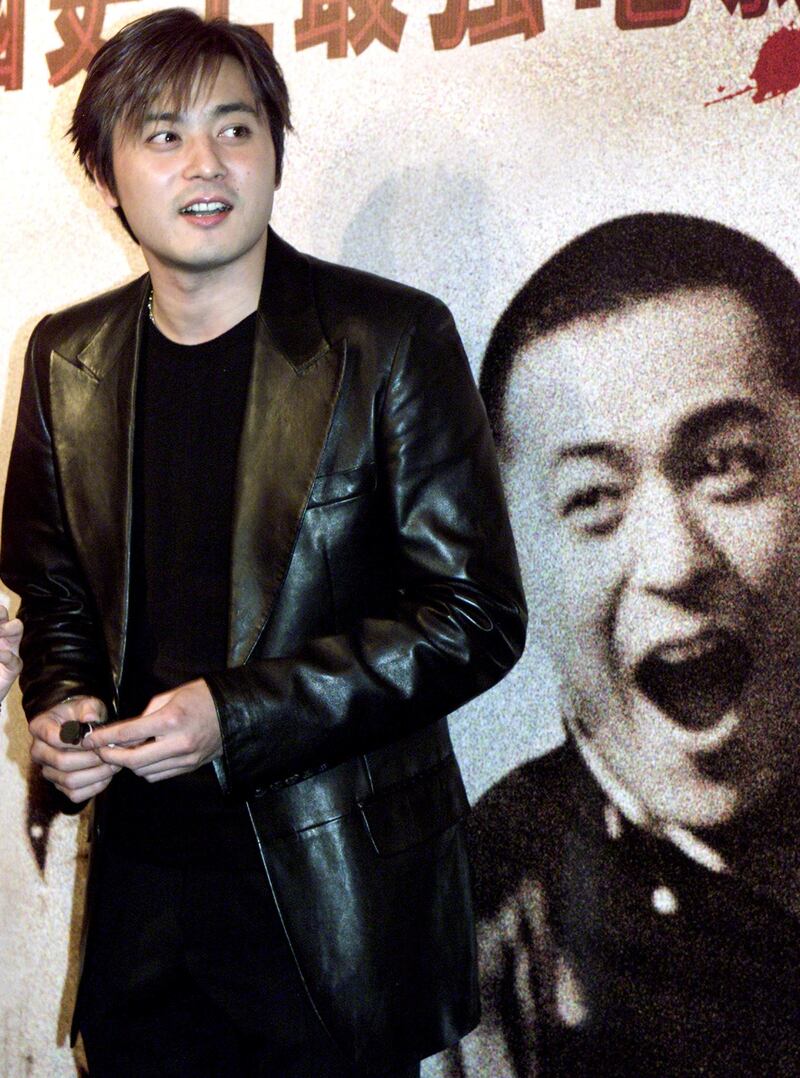Authorities in North Korea are cracking down on residents wearing leather trench coats, saying that it is disrespectful to emulate the fashion choices of the country’s leader Kim Jong Un, sources in the country told RFA.
Leather trench coats became popular in 2019 after Kim appeared on TV wearing one. At first, real leather coats imported from China were snapped up by rich people who could afford them, but soon garment makers began to import fake leather to make them domestically.
Soon almost every North Korean marketplace was selling them and many young men could be seen sporting faux leather slickers of their own.
To put a stop to the cheap imitations, and the cheap imitators who wear them, literal fashion police patrol the streets to confiscate the jackets from sellers and citizens sporting the look.
But another TV appearance by Kim and his cohort this year popularized the look with a new demographic, a resident of the city of Pyongsong in South Pyongan province, north of the capital Pyongyang, told RFA’s Korean Service Nov. 21 on condition of anonymity for security reasons.
“During the military parade at the 8th Party Congress in January of this year, the Highest Dignity and all the high-ranking officials were shown wearing leather coats also,” said the source, using an honorific term to refer to Kim.

The leather-clad officials included Kim Jong Un’s sister Kim Yo Jong, who many believe may be the next in line to lead the country, and several other powerful women, according to the source.
“So now the leather coat has become a symbol for powerful women too,” the source said.
“As leather coats began to be recognized as a symbol of power, private clothing merchants asked trading company officials to import synthetic leather since September of this year. … They copied the design of the leather coats worn by the Highest Dignity and the officials and now they are being sold in the marketplace,” said the source.
But the police in Pyongsong recently started their crackdown, confiscating the coats from sellers and people wearing them in public, according to the source.
“Young men protest, saying they bought the coats with their own money and there is no reason to take them away,” the source said.
“The police respond to the complaints, saying that wearing clothes designed to look like the Highest Dignity’s is an ‘impure trend to challenge the authority of the Highest Dignity.’ They instructed the public not to wear leather coats, because it is part of the party’s directive to decide who can wear them,” the source said.
Though the leather trench coat look is a recent trend, North Koreans have been wearing leather jackets since at least the early 2000s, a resident of the northwestern province of North Pyongan told RFA.
“That was when South Korean films began to spread in provincial cities, and the leather jacket worn by the South Korean actor Jang Dong-gun became all the rage and is still in vogue,” said the second source, who requested anonymity to speak freely.

“As the demand for leather jackets has increased, finished leather jackets imported from China as well as those made domestically have been sold continuously in the marketplaces,” said the second source.
Leather trench coats, however, have become more popular than leather jackets ever since Kim Jong Un’s TV appearances in cowhide, according to the second source.
“Rich entrepreneurs are able to import the fabric for the coats by placing an order with state-run trading companies who have partially resumed maritime smuggling,” the second source said.
Though North Korea and China officially stopped trading at the beginning of the coronavirus pandemic in January 2020, “official” smuggling, or covert trade by state run firms in items that are not allowed by U.N. and U.S. nuclear sanctions, partially resumed in April of this year.
A recent Chinese customs document obtained by RFA confirmed that North Korea imported various fabrics from China, including dozens of meters of synthetic leather this month.
“When these leather coats became popular, the law enforcement authorities went after the companies that made the coats that look too much like the Highest Dignity’s. They also go after people wearing them in public,” the second source said.
“Residents protest against the crackdown asking how there could be anything impure about the choice to wear a leather coat.”
Leather coats in North Korea are prohibitively expensive. Those made of real leather cost about 170,000 won (U.S. $34), and about 80,000 won ($16) for fake leather.
The average North Korean monthly salary in 2018 was about 4,000 won (U.S. $0.66), according to the Korea Joongang Daily, a South Korean newspaper.
Translated by Leejin Jun. Written in English by Eugene Whong.
